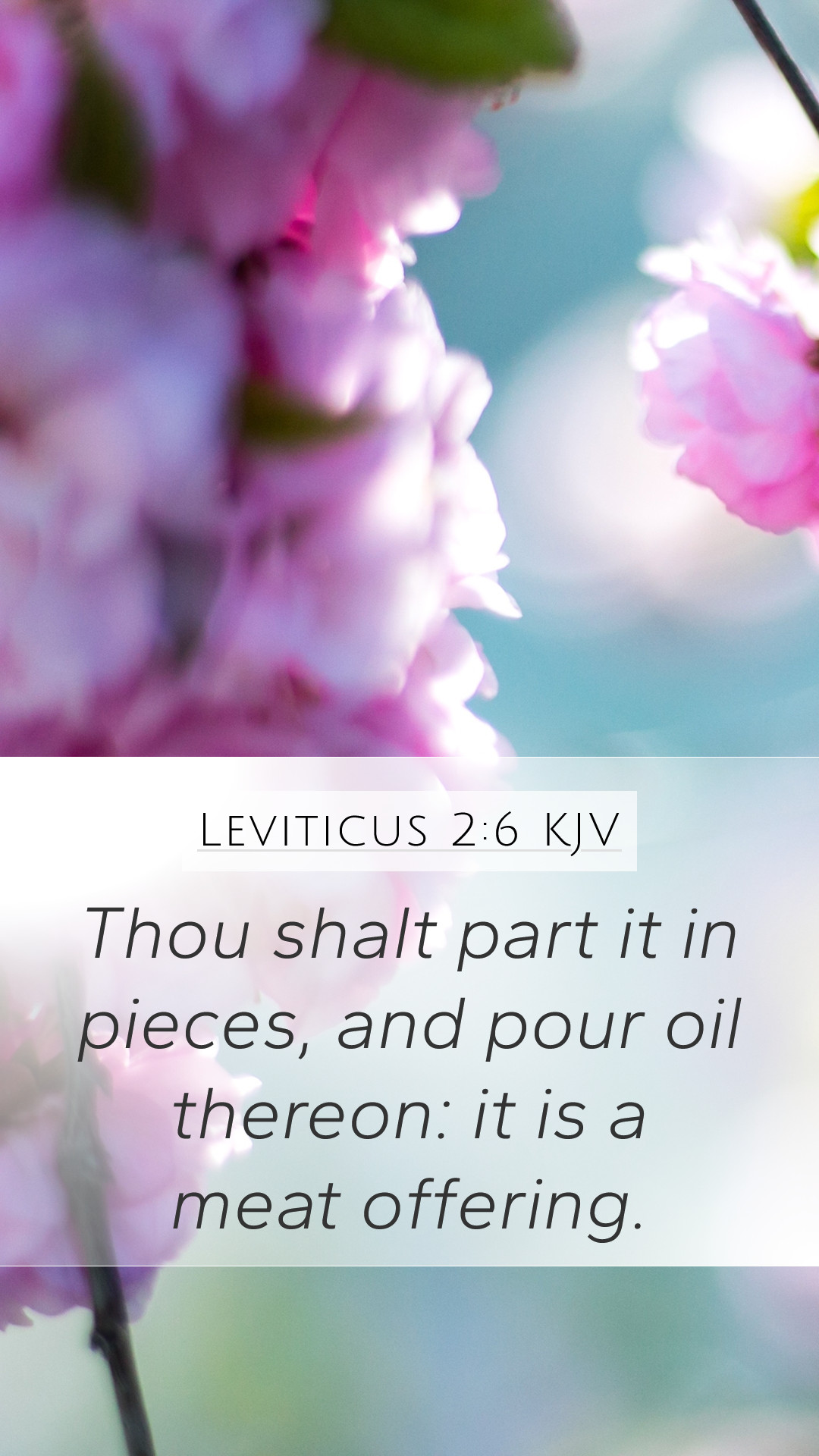Understanding Leviticus 2:6
Leviticus 2:6 states: "You shall part it in pieces and pour oil on it; it is a grain offering." This verse focuses on the instructions regarding the grain offering, which was an essential part of the Old Testament sacrificial system. In this summary, we will explore the Bible verse meanings, interpretations, and explanations through insights from public domain commentaries including those by Matthew Henry, Albert Barnes, and Adam Clarke.
Context of Leviticus 2:6
The book of Leviticus is centered around the laws and instructions given to the Israelites concerning worship, rituals, and what it means to be a holy people before God. The grain offering is one of the many offerings outlined, reflecting gratitude and devotion.
Interpretation from Public Domain Commentaries
-
Matthew Henry's Commentary:
Henry explains that the grain offering symbolizes the acknowledgment of God as the giver of all sustenance. By offering grain, the people are expressing their gratitude and recognizing God's provision in their lives. The act of pouring oil is described as an enhancement of the offering, symbolizing the anointing and the blessings of the Holy Spirit.
-
Albert Barnes' Notes:
Barnes notes that the cutting of the grain offering into pieces and pouring oil on it signifies the sanctification of the offering for God. The specific instructions also highlight the importance of detail and obedience in worship. Barnes emphasizes that such offerings were to be made without leaven or honey, symbolizing purity in our approach to God.
-
Adam Clarke's Commentary:
Clarke elaborates on the symbolism embedded in the grain offering. He suggests that the grain represents the fruits of one's labor and thus indicates a person’s personal contribution to the worship of God. He also remarks on the oil being a representation of joy and gladness, offering insight into how worship should be approached—joyfully and with sincerity.
Broader Symbolism of Grain Offerings
The grain offering itself consists of fine flour mixed with oil, often accompanied by frankincense. This blend showcases the idea of bringing the best before God, a theme that resonates throughout the scripture. The act ties back to the agricultural context of the Israelites, illustrating their dependence on God's grace for sustenance.
Application and Significance
Applying Leviticus 2:6 to contemporary life involves understanding the importance of offering our best to God. This scripture encourages believers to cultivate a spirit of gratitude and dedication in all their endeavors, just as the Israelites were instructed to do with their grain offerings.
Cross References
- Exodus 29:40 - Discusses the offerings to be made, highlighting the need for purity and specific details in sacrificial acts.
- Leviticus 2:1 - Introduces the grain offering and its place within ceremonial worship.
- Genesis 4:3-5 - Details Cain and Abel's offerings, demonstrating the significance placed on the attitude behind the offerings rather than just the acts themselves.
Conclusion
Leviticus 2:6 serves as a profound reminder of the importance of gratitude, holiness, and obedience in our relationship with God. Through this scripture, we are invited into a deeper understanding of worship, encouraging us to reflect on what we offer to God in our daily lives. For those engaged in Bible study groups or exploring online Bible study, this verse opens a rich avenue for discussion on the meaning and significance of offerings in our spiritual journey.


